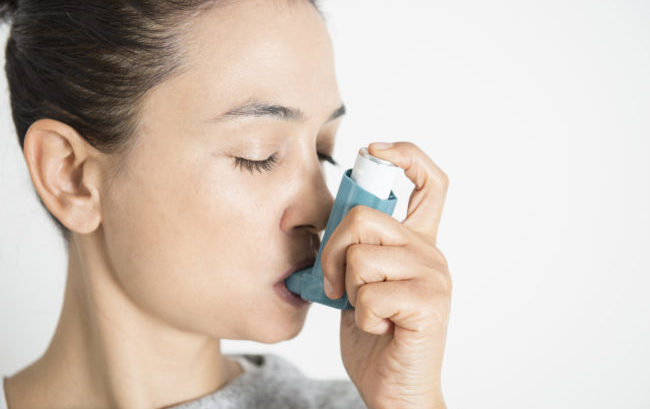5 Myths About Asthma
If you don’t have asthma, chances are you know someone who does. That’s because an estimated 26 million Americans, or 8.3 percent of the population, have this sometimes deadly disease. Because May is Asthma and Allergy Awareness Month, our concierge primary care doctors at MD 2.0 in Jupiter want to take a closer look at asthma and the common misunderstandings surrounding it.
What is asthma?
Asthma is a chronic lung disease that causes airways (bronchial tubes) to narrow and swell, and produce extra mucus. Symptoms can include difficulty breathing, coughing, wheezing, shortness of breath, and/or chest tightness.
According to the Allergy & Asthma Network, asthma is different for each person. It is affected by many factors including age, family background, race, gender, living spaces, workplace, environmental factors, immune system development and general health.
What causes asthma?
No one is sure what causes asthma to develop, although having a blood relative (e.g., a parent or sibling) with the disease is thought to increase your chances of developing it. In addition, other suspected causes include:
- being a smoker
- being overweight
- exposure to air pollution
- occupational triggers (e.g., manufacturing chemicals, hairdressing, or farming chemicals)
The National Heart, Lung, and Blood Institute (NHLBI), a division of the U.S. Department of Health & Human Services (HHS), also mentions the so-called “hygiene hypothesis” as a possible cause. This is the theory that our highly sanitized Western lifestyle has shielded young children from common pathogens in their surroundings that otherwise would tend to strengthen their immune system, not only against asthma but against other types of allergies.
Common myths
- Asthma is all in your head.
False. Asthma is a real disease, with observable physical changes to the lung. These changes can be seen under a microscope in the cells taken from the lungs of affected individuals. The belief arises from the fact that stress and emotional upset can trigger or exacerbate asthma symptoms.
- Asthma is annoying but ultimately harmless.
False. This may be the most common myth among those who have little experience with the disease. It is true that, for some, asthma is little more than a minor nuisance. For others, it can be deadly. About 10 people die each day from asthma.
- You will outgrow asthma.
False. There is no cure for asthma. Asthma frequently appears first in childhood, affecting an estimated 6.8 million children under 18 in the United States. Symptoms may lessen over time, but can reappear later in life.
- Exercise triggers asthma.
True, in some cases. If you have a type of asthma known as exercise-induced asthma (EIA), physical exercise can cause or exacerbate symptoms. However, with proper management and our guidance, exercise is an excellent way to improve your cardiovascular system, as well as strengthen the lungs and boost the overall immune system.
- You can become addicted to asthma medication.
False. You can no more become “addicted” to asthma medication, including inhalers, than a diabetic becomes “addicted” to insulin. The fact is that asthma is a chronic condition that requires different medications for each individual. When the right combination of medication is achieved, patients can lead a normal, active life with their symptoms under control.
If you have symptoms of asthma, know that they can be controlled. It is important to treat asthma because left untreated, it can cause long-term lung damage or result in a life-threatening attack. If you have frequent coughing or wheezing not associated with a cold, or your asthma symptoms worsen, be sure to contact us for an evaluation.

